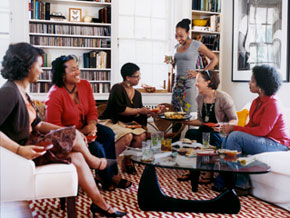many authors really do miss the mark a lot of times when trying to write this genre. I wanted to take the time today to really think about what we mean when it comes to this book club genre.
First of all, we have understand the dynamics of book clubs. These are chances for discussion and dialogue. These are chances to really dive into characters and events to understand a bit of who we are as human beings. The key is that the books need to promote discussion, and often, the discussions may even move away from the actual story text and to external discussions.

To really understand book club literature, we often have to look at several elements.
- The plot and theme of the story
- The characters
- The writing and voice
What we often find in stories such as this are universal themes and messages that the general public can become attached to. Even if the characters or the plot is something that might be different and unique, the message itself is one that we can all relate to. Consider, for example, China Dolls by Lisa See. Although this story focuses on 1940 Chinese immigrants, the general reader has access to what they are experiencing. We have all experienced situations of being different, or being on the outside. We may have even experienced difficult family lives such as one of the characters.
This story also gives the readers a chance to discuss historical perspectives and even how these events are seen even in the present day world. Again, the idea is that these are issues most people would want to talk about and discuss There isn't much in terms of a discussion about the plot of the book, but what the characters are going through.
CHARACTERS Very similar to the plot and theme, the characters of these stories tend to be symbolic of universal characters. The key to understanding book club characters is the way they can relate to the general public. If the characters are so unique or so different, while they may be interesting, the general reader simply will not be able to relate.
I often see writers missing the mark here when they create characters with a huge number of problems and issues. For example, if the story is about a wife just trying to get used to being in a new neighborhood with a different population of people, we can connect with this. Add in a kid who is a drug user, a daughter who is pregnant, a husband who is having an affair and then she starts fantasizing over the pool boy, then readers lose that connection. With the exception of Susan Lucci on soap operas, this type of person simply doesn't exist.
THE WRITING The writing for many pieces of book club literature is often a bit more "mature" in voice and style. I am not saying that the writing is full of bizarre metaphors and similes. The writing, instead, encourages a slower and more focused read. This is different than a lot of those stories you might have on your summer reading lists. Those books tend to be light and, for lack of a better word, mindless. This is escapist literature.
As I am reading projects that might have that potential of being a book club novel, I want to see how the author has intentionally forced the reader to slow down and "smell the roses."
Book club literature is a great genre to write, but authors really need to understand that this requires a lot more than simply figuring out plots and characters. This is a complete package. If you are thinking of submitting a story in this area, ask yourself how this really promotes a discussion.
Thank you, Scott. In my search for an agent I have heard the term, "Book Club Women's Fiction" but never knew exactly what it meant. As a reader, I belong to two book clubs, and now that I understand the definition better, I can easily pinpoint the books that would fit this category. As an author, my last novel, The Community Garden ... more than tomatoes are dying, was the featured novel for several book clubs in my area. I was the guest at each of their book club gatherings and it was interesting and educational to listen to the discussion my book provoked. Thank you again for this article.
ReplyDelete